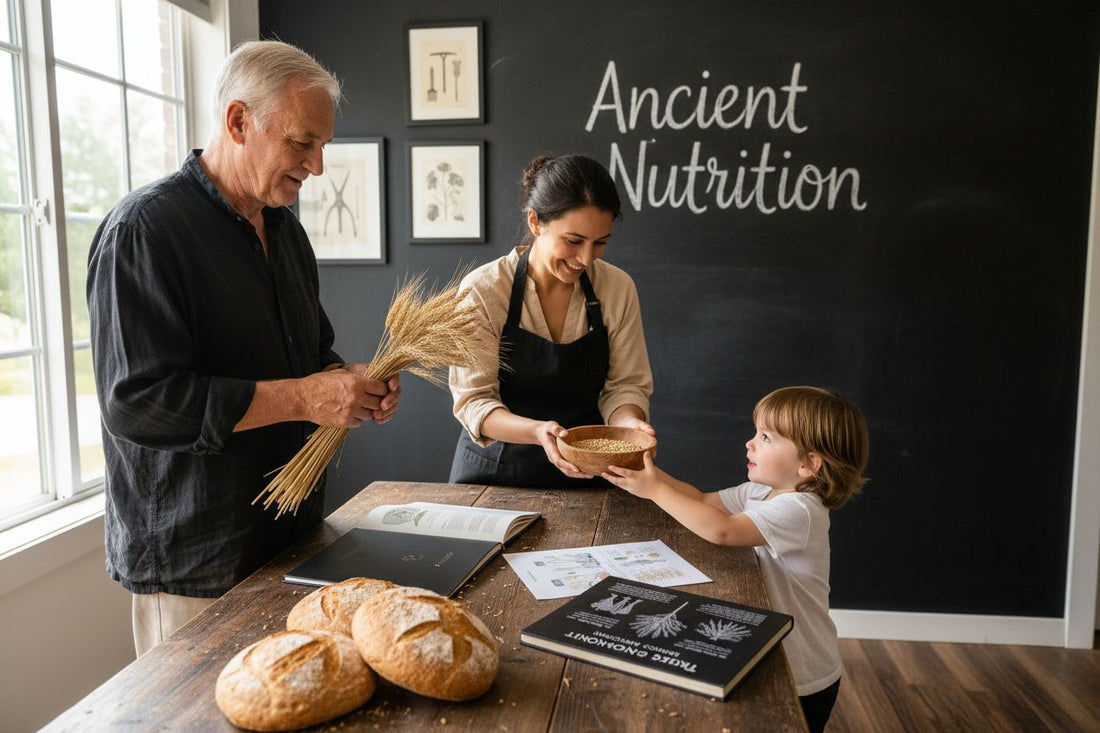
What is Einkorn Grain? Understanding Ancient Nutrition
Share
Einkorn grain is not just any old wheat. This ancient crop is the original wheat species, unmodified for thousands of years and with only 14 chromosomes compared to modern wheat’s 42. People now expect nutrition to come from the latest trends or heavily fortified foods. Yet, it is this untouched, primitive grain that quietly packs more protein, essential minerals, and antioxidants than most wheats in supermarkets today.
Table of Contents
- Einkorn Grain: A Brief Introduction To An Ancient Crop
- Nutritional Benefits Of Einkorn Grain For Modern Diets
- Why Einkorn Matters: Historical And Cultural Significance
- How Einkorn Grain Is Cultivated And Used Today
- Understanding The Unique Properties Of Einkorn Grain
Quick Summary
| Takeaway | Explanation |
|---|---|
| Einkorn is an ancient, unmodified grain. | Einkorn wheat has existed for over 10,000 years without significant human alteration, making it unique among wheat varieties. |
| Higher nutrient density than modern wheat. | Einkorn contains more protein, essential minerals, and antioxidants, promoting better health outcomes compared to processed wheat. |
| Potentially more digestible for sensitive individuals. | Einkorn’s different gluten structure may be easier to digest, making it suitable for people with mild wheat sensitivities. |
| Supports agricultural biodiversity and heritage. | Cultivating einkorn helps preserve ancient agricultural practices and genetic diversity in our food systems. |
| Culinary uses are increasingly popular. | Artisan bakeries and health-focused restaurants are including einkorn in their offerings to meet modern dietary preferences. |
Einkorn Grain: A Brief Introduction to an Ancient Crop
Einkorn wheat represents one of humanity’s most profound agricultural legacies, a primordial grain that connects modern nutrition with our earliest farming traditions. Unlike contemporary wheat varieties, einkorn stands as an unmodified, original wheat species that has remained remarkably unchanged since its initial cultivation thousands of years ago.
Origins and Archaeological Significance
Archaeological evidence suggests that einkorn was among the first domesticated wheat varieties, originating in the Fertile Crescent approximately 10,000 years ago.
Key characteristics of einkorn that distinguish it from modern wheat include:
- Genetic Simplicity: Containing only 14 chromosomes compared to modern wheat’s 42
- Minimal Human Intervention: Largely unchanged through selective breeding
- Original Genetic Structure: Preserving its primordial nutritional profile
Nutritional Uniqueness
What makes einkorn extraordinary is its nutrient density and genetic integrity. Modern wheat has been extensively modified through agricultural practices, whereas einkorn retains its original genetic composition. This preservation means it contains higher protein concentrations, more essential minerals, and unique antioxidant profiles compared to contemporary wheat varieties.
The following table compares the key characteristics of ancient einkorn wheat with modern wheat varieties, highlighting their genetic, nutritional, and cultivation differences for easy reference.
| Feature | Einkorn Wheat | Modern Wheat |
|---|---|---|
| Chromosome Number | 14 (diploid) | 42 (hexaploid) |
| Genetic Modification | Unmodified; original genetic structure | Extensively hybridised and modified |
| Nutritional Density | Higher protein, more minerals and antioxidants | Lower relative protein and micronutrients |
| Gluten Structure | Simpler, potentially more digestible | Complex, often linked to more sensitivities |
| Cultivation Yield | Lower, requires specific conditions | High yield, intensive farming possible |
| Agricultural Biodiversity Impact | Supports biodiversity and ancient practices | Often reduces crop diversity |
Interested readers can learn more about ancient grain nutrition and explore how these traditional crops continue to offer remarkable health benefits in our modern dietary landscape.
Nutritional Benefits of Einkorn Grain for Modern Diets
Einkorn grain represents a nutritional powerhouse that offers significant advantages for contemporary dietary needs, providing a remarkable alternative to highly processed modern wheat varieties. Its unique genetic composition translates into profound nutritional benefits that address several key health considerations for modern consumers.
This table outlines the main nutritional and health-related properties of einkorn grain, organising key benefits cited in the article for quick scanning.
| Attribute | Description |
|---|---|
| Protein Content | Superior concentration and improved amino acid profile compared to conventional wheat |
| Essential Minerals | Contains more zinc, magnesium, and other micronutrients |
| Antioxidant Properties | Rich in antioxidants that support cellular protection |
| Gluten Digestibility | Unique gluten structure may be easier for those with mild sensitivities |
| Suitability for Diets | Offers an alternative grain source for health-conscious individuals |
| Modern Culinary Applications | Utilised in artisan bakeries and health-focused restaurants |
Protein and Micronutrient Profile
Research from the National Institutes of Health demonstrates that einkorn contains a superior protein structure compared to conventional wheat. The grain offers a more complete amino acid profile, which supports muscle maintenance, metabolic function, and overall cellular health. Key nutritional highlights include:
- Higher protein concentration compared to modern wheat varieties
- Enhanced levels of essential minerals like zinc and magnesium
- Robust antioxidant content that supports cellular protection
Digestibility and Gluten Sensitivity
One of the most compelling aspects of einkorn is its potential improved digestibility. Unlike contemporary wheat, einkorn contains a different gluten molecular structure that may be more compatible with individuals experiencing mild wheat sensitivities. This characteristic makes it an intriguing option for those seeking alternative grain sources that do not compromise nutritional integrity.
Understand more about einkorn flour nutrition to explore how this ancient grain can be integrated into a balanced, health-conscious diet. The nutritional complexity of einkorn demonstrates how traditional agricultural practices can offer sophisticated solutions to modern dietary challenges.
Why Einkorn Matters: Historical and Cultural Significance
Einkorn wheat transcends mere agricultural history, representing a profound narrative of human adaptation, survival, and cultural evolution. This ancient grain serves as a living connection between contemporary society and our earliest agricultural innovations, embodying thousands of years of human ingenuity and ecological understanding.
Agricultural Revolution and Human Settlement
Encyclopaedia Britannica highlights einkorn’s pivotal role in the Neolithic Agricultural Revolution, marking a transformative period when nomadic hunter-gatherer societies transitioned to permanent agricultural settlements. By domesticating einkorn, our ancestors fundamentally reshaped human social structures, enabling more stable food production and laying groundwork for complex civilisations.
Key historical contributions of einkorn include:
- Enabling transition from nomadic to settled agricultural societies
- Providing a reliable, nutrient-dense food source for early human populations
- Supporting population growth through consistent grain production
Cultural Symbolism and Traditional Practices
Beyond its nutritional value, einkorn held significant cultural symbolism in ancient societies. Many early civilisations viewed this grain as more than sustenance it represented fertility, prosperity, and human resilience. Traditional farming communities developed intricate rituals and practices around einkorn cultivation, reflecting deep spiritual connections with agricultural cycles.
Learn more about ancient grains and their cultural significance to understand how these traditional crops continue to carry profound historical narratives. Einkorn wheat remains a testament to humanity’s remarkable capacity for adaptation and innovation through agriculture.
How Einkorn Grain is Cultivated and Used Today
Einkorn wheat represents a unique agricultural endeavour that bridges traditional farming practices with modern nutritional requirements. Unlike mass-produced wheat varieties, einkorn cultivation demands specialised knowledge and a commitment to preserving its genetic integrity and distinctive agricultural characteristics.
Modern Cultivation Practices
Agricultural Research Services highlight that contemporary einkorn cultivation requires careful environmental management and selective agricultural techniques. Farmers cultivating einkorn must maintain specific soil conditions and minimise industrial agricultural interventions to preserve the grain’s original genetic structure.
Key considerations in modern einkorn cultivation include:
- Limited geographical regions suitable for authentic growth
- Reduced crop yields compared to conventional wheat
- Requirement for specialised farming techniques
Culinary and Nutritional Applications
Modern food systems are increasingly recognising einkorn’s potential beyond historical significance. Artisan bakeries, health-focused restaurants, and speciality food producers are integrating this ancient grain into contemporary culinary landscapes. The grain’s unique nutritional profile makes it particularly attractive for individuals seeking alternative wheat sources with enhanced digestibility and nutrient density.
Explore our comprehensive guide to ancient grain nutrition to understand how traditional crops like einkorn are reshaping modern dietary approaches. Einkorn continues to demonstrate remarkable adaptability, bridging millennia of agricultural wisdom with contemporary nutritional needs.

Understanding the Unique Properties of Einkorn Grain
Einkorn grain represents a remarkable botanical specimen that defies conventional wheat characteristics, offering a complex genetic profile that distinguishes it from modern agricultural wheat varieties. Its unique properties emerge from an unaltered genetic structure that has remained remarkably consistent through thousands of years of human agricultural history.
Genetic and Molecular Composition
Molecular Biology Research reveals that einkorn possesses a distinctive gluten molecular structure with lower molecular weight glutenin subunits. This genetic characteristic fundamentally differentiates einkorn from contemporary wheat varieties, potentially explaining its unique nutritional and digestive properties.
Key distinguishing genetic properties include:

- Diploid Chromosome Structure: Containing only 14 chromosomes compared to modern wheat’s 42
- Unchanged Genetic Composition: Minimal human-induced genetic modifications
- Primitive Wheat Genome: Representing an original, unaltered wheat variety
Biochemical and Nutritional Characteristics
Beyond its genetic uniqueness, einkorn demonstrates exceptional biochemical attributes that set it apart from industrialised wheat. Its molecular structure contributes to a different protein configuration, potentially offering improved digestibility and a more nuanced nutritional profile. The grain’s primitive genetic makeup translates into higher concentrations of specific micronutrients and antioxidants.
Discover more about ancient grain nutrition to explore how these extraordinary genetic characteristics translate into tangible health benefits. Einkorn grain continues to fascinate researchers and nutritionists as a living testament to agricultural biodiversity.
Bring Ancient Nutrition into Your Kitchen
Feeling overwhelmed by highly processed flours and modern wheat that just do not satisfy your nutritional needs? You have read how einkorn grain keeps its original purity and is packed with proteins and micronutrients that modern diets often lack. For those searching for genuine solutions to digestive discomfort, empty energy or unfulfilling breakfasts, Granavitalis offers you a clear path forward. Explore our selection of All Flours to discover how ancient grains like einkorn can nourish your mornings and transform the way you fuel your body.

Choose food that respects tradition and supports your well-being. Visit Granavitalis today and step away from compromises at the breakfast table. Now is the best time to switch to wholesome nutrition. Every bowl is a chance to choose better health, for yourself and your family.
Frequently Asked Questions
What is einkorn grain?
Einkorn grain is an ancient wheat species that has remained largely unchanged since its initial domestication approximately 10,000 years ago. It is considered to be one of the earliest cultivated grains and is known for its nutritional density and unique genetic composition.
How does einkorn differ from modern wheat?
Einkorn contains only 14 chromosomes, whereas modern wheat varieties have 42. This genetic simplicity means einkorn has a more intact nutritional profile, higher concentrations of proteins, essential minerals, and unique antioxidants compared to contemporary wheat.
What are the nutritional benefits of einkorn grain?
Einkorn grain is a nutritional powerhouse, offering a higher protein content, more essential minerals like zinc and magnesium, and robust antioxidant properties. Its unique gluten structure may also make it easier to digest for those with mild wheat sensitivities.
How is einkorn grain cultivated today?
Modern einkorn cultivation requires specialised farming techniques and careful environmental management. Farmers must maintain specific soil conditions and minimise industrial agricultural interventions to preserve the grain’s original genetic structure.
